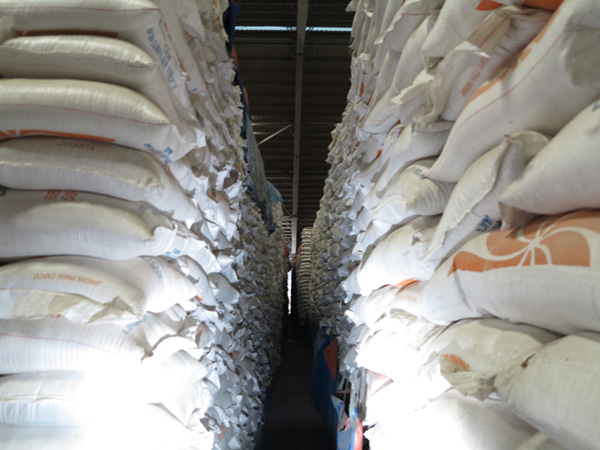
Rice stock. INQUIRER FILE PHOTO
For the National Food Authority (NFA) to stay relevant in a deregulated rice industry, the country’s premier think tank said it must stop regulating imports and instead focus on maintaining a buffer stock.
In a study published by the Philippine Institute for Development Studies (PIDS) entitled “Options for reform of the National Food Authority,” it said the command-and-control approach of the agency had become outdated and must shift towards a market-based approach.
This entails the transformation of the NFA into a “pure buffer stocking agency with no regulatory mandate over the rice market.”
“Under this option, the private sector owns stocks but is contracted to sell them to NFA in the event of emergency at market price, thereby realizing greater efficiencies from private sector management,” the study said.
“In the long run, the ideal setup is reliance on the private sector in all provinces. Transitioning to this involves a wider private sector development… setting up of mandatory rice grades and standards, establishment of a warehouse receipt system, and upgrading of the value chain,” it added.
However, PIDS noted that for the set-up to work, competition among industry players must be “vigorous,” and may not be ideal when large traders are given the avenue to manipulate prices.
“Hence, the Philippine Competition Commission must consistently enforce fair competition in the rice market,” it said.
While the grains agency may still operate as it is under the rice tariff regime wherein import quotas on rice would be lifted, the think tank did not recommend it. The NFA maintaining its import monopoly and licensing powers may only work as a barrier in opening the market to competition, it said.
Currently, the NFA is mandated to maintain a 15-day buffer stock at any given time and a 30-day buffer stock during lean months, or when local harvest is at its lowest.
However, following the recent shortage of the staple, President Rodrigo Duterte ordered the increase in the national rice inventory to last for at least 60 days.
The country will finally open its doors to a free-for-all rice importation before the year ends following the passage of the Rice Tariffication Bill, in a bid to provide consumers with cheaper rice.
A separate study by PIDS stated that the deregulation of rice imports may result in a reduction of P6 per kilo in prices in the market, where the staple currently sells at an average of P44 a kilo. /cbb